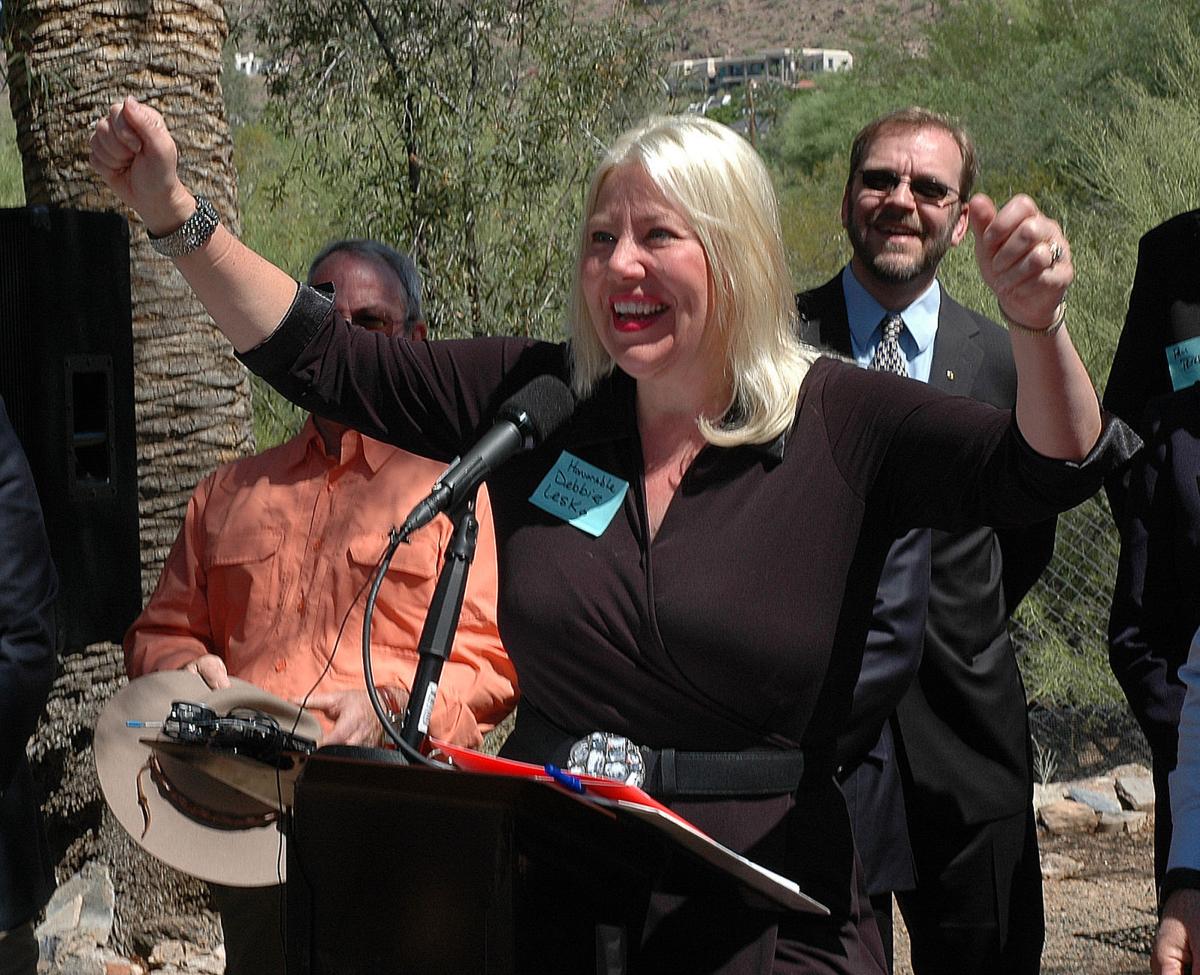PHOENIX — Not content to make gathering signatures more difficult, Republican lawmakers are now moving to impose new procedural requirements on voters who want to propose their own laws.
The measure being pushed by Sen. Debbie Lesko, R-Peoria, would allow a court to keep an initiative off the ballot if backers are not in “strict compliance” with all election laws. That would overturn a series of existing court rulings that have erred on the side of giving voters their say and letting measures remain on the ballot if there is “substantial compliance” with the law.
Lesko said she is particularly miffed that Arizonans were allowed to vote in 2012 on a proposal that would have made permanent the state’s 1-cent sales tax surcharge.
It is undisputed that a copy of the initiative filed electronically with the Secretary of State’s Office differed from the one filed on paper and was actually circulated. But courts concluded the circulators had been in “substantial compliance” and allowed the vote to go forward.
That annoyed Lesko.
“What’s the point of having laws?” she asked.
As it turns out, the measure was defeated.
But the wording of HB 2244, set for debate Tuesday in the Senate Appropriations Committee, is far more sweeping than the kind of situation that occurred in 2012. It even would disqualify an initiative because of the use of the wrong text size or incorrect margins printed on petitions.
Lesko is unapologetic.
“I think that if the law says there has to be certain things, the law should be followed,” she told Capitol Media Services.
She conceded the change does not apply to candidates.
“But I measure and make sure that it definitely follows the law,” Lesko said of her own petitions. “And if people follow the law, there shouldn’t be other people not follow the law.”
It’s not just the 2012 measure that would never have made it to the ballot under the standard that Lesko wants to impose.
In 2008, homebuilders sought to keep voters from considering a “homeowner bill of rights” simply because some of the proposed changes in law were not in capital letters. That is the standard format for having what’s new stand out.
But the Court of Appeals said voters should be given a chance to decide the issue, concluding the petitions substantially complied with the legal requirements. The initiative was later defeated.
And just last year, foes of legalizing the recreational use of marijuana sought to block a vote, charging that the summary of the measure and the text itself were too flawed to go to voters.
But Supreme Court Chief Justice Scott Bales said Arizona law requires only that ballot measures be in “substantial compliance” with legal requirements. And he said Proposition 205 fit within that definition.
Lesko’s move comes less than a week after Gov. Doug Ducey signed legislation making it illegal to pay petition circulators on a per-signature basis. Foes of that measure said that bar, by itself, will make it far more difficult, if not impossible, to gather the hundreds of thousands of signatures needed to propose new laws and constitutional amendments.
That did not go unnoticed by Sen. Steve Farley, D-Tucson.
“This is yet another in a series of measures by the majority to try to quash the voice of the people of Arizona,” he told Capitol Media Services.
“If you’re trying to make it harder to get an initiative through, then you’re making it harder for people to have their voice heard.”
Farley said he’s concerned that otherwise valid and popular measures will be thwarted for technical reasons.
Arizona law requires petitions to be printed in at least eight-point type. There are 72 points to an inch.
They also must be printed in black ink on white or recycled paper, 14 inches wide and 8½ inches in length “with a margin of at least one-half inch at the top and one-fourth inch at the bottom of each page.”
“If you are able to throw out something because a margin is an eighth of an inch too short on one side, that is not relevant to the people’s will,” Farley said. “That’s relevant to your desire to throw the thing off the ballot without allowing people to vote on it.”
Lesko said while she believes there is a need for strict compliance with petition drives, she does not see that as necessary for politicians like herself.
“Candidates can be elected out every two years,” she said. “An initiative, once it’s in, it’s in. It’s almost virtually impossible to change it.”
That’s because of the Voter Protection Act, itself an initiative drive in 1998, which forbids lawmakers from repealing what has been enacted at the ballot and sharply restricts changes.
As it turns out, though, the House already has approved a measure to ask voters to repeal that provision, with action awaiting in the Senate. But Lesko said she’s not sure that would undermine her reasoning of why strict compliance with initiatives is necessary.
“I haven’t thought that through,” she said.





